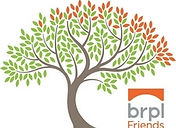
Susan Cushman has written a book that highlights the Friends of the Library. It is a compilation of short stories, set in a small town, an author on a book tour visiting Friends of the Library groups.
Her website and other sites are synchronized when they say that the first group to call themselves a "Friends group" first occurred in 1913 in France. A little further down the history timeline, in 1922, the first Friends of the Library group in the U.S. was formed in Illinois. The group was organized to provide books for the library and they raised over $300 in their first year. Another group, at the same time, was created in Syracuse, NY.
United for Libraries is a subset of the American Library Association. According to the United for Libraries website, currently there are "5,000 Friends of the Library, Trustee, Foundation and individual and group members representing hundreds of thousand of library supporters."
The Association for Library Trustees and Advocates (ALTA) joined forces with Friends of the Library U.S.A. (FOLUSA). The push for literacy, education, and awareness has been a constant and these library organizations, around since 1890, consist of enthusiastic and caring volunteers.
Ultimately, this peaked my curiosity as it pertains to the non-profit sector. I have a tax background and it's amazing to think that these early groups were trailblazing their way through uncharted territory. Not only did they possess a drive to provide for the community, but they had to apply for tax exemption and stay within the activity restrictions. Although people may consider tax and tax issues a snoozy topic, it is an interesting evolution as to how charitable organizations came to be in the U.S. But the rules and exceptions to charitable organizations stem from the Revenue Act of 1917, which allowed taxpayers to deduct charitable gifts from income; the Tax Reform Act of 1969; and later, the Tax Reform of 1986.
Thanks to everything done by the Friends of the Library, libraries are able to thrive. It is important that these organizations stay vigilant and attuned to not only the larger issues of the community, but the smaller ones that impact individuals and their personal growth. It is critical that technology be incorporated and made accessible through the library system. This is what a library should be: a home, a haven, a soft place to land. Where would libraries be without their Friends' counterpart? I am glad that we, as a society, figured all of this out early on.
I hope everyone is staying safe. Part III, highlighting OUR OWN Friends group, will post next Friday. Stay tuned and well wishes.

Comentários